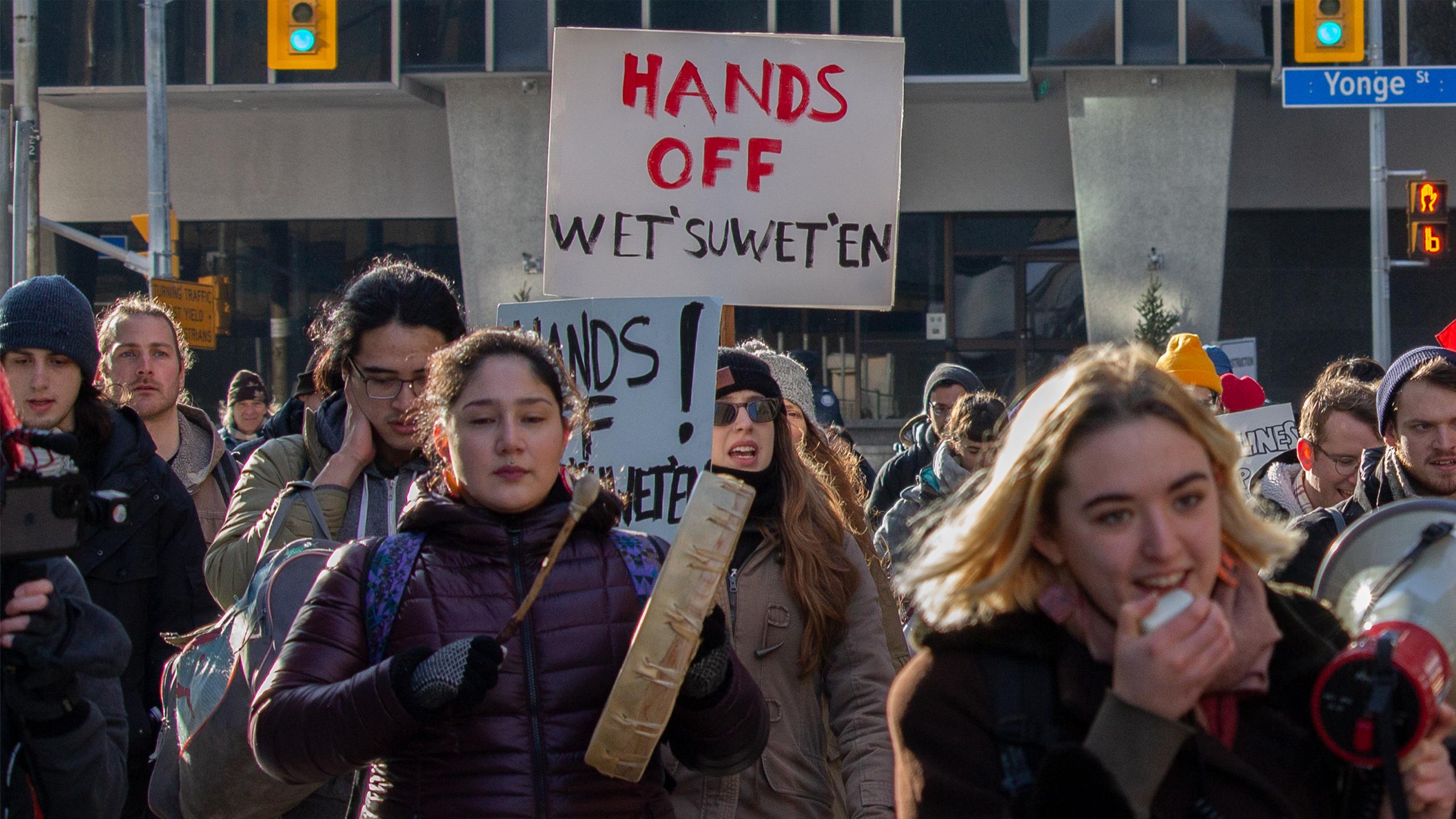By Sarah Krichel
Canada’s curricula doesn’t teach us about colonialism. This, we know. But you don’t need any history class to know what colonialism looks like—the Royal Canadian Mounted Police (RCMP) is teaching us all, with a lesson right before our eyes.
If you’re a non-Indigenous person and the idea of “live colonialism” makes you uncomfortable, that is what should entice you to truly question how Canada treats its Indigenous Peoples.
The term “colonialism” isn’t just a history lesson—it’s happening now, but not just in Wet’suwet’en Nation or on B.C. and Ontario grounds where blockades are taking place. It’s all around you as a student on this campus.
It’s in the classrooms of Ryerson when Indigenous students are brushed off and Canada’s history of violence and murder against those students’ ancestors and relatives is watered down.
“The Peoples have repeated themselves:
We are unarmed. We are peaceful”
It’s the lack of representation and autonomy of Indigenous profs and faculty to teach the arts, cultures and languages of their own communities.
It’s the ongoing lack of student consultation while proposing special constables be implemented on campus—a police presence that endangers marginalized people such as Indigenous people.
It’s the anti-Indigenous toxicity and culture present on this campus that can lead to a student leaving Ryerson indefinitely.
It’s the fact that Egerton Ryerson, a key developer of the residential school system, which led the Indigenous genocide in Canada, still stands taller than the rest of us as a statue on Gould Street.
Since January, the RCMP have been invading the Wet’suwet’en Nation on unceded territory. The invasion is to enforce a Supreme Court injunction calling to remove any obstacles that stand in the way of building a Coastal GasLink pipeline. Canada has a “duty to consult…prior to taking actions or making decisions that may have consequences for the rights of Indigenous peoples in Canada.” Without taking those consultations seriously, it’s ignoring its supposed commitment to reconciliation.
As Pam Palmater, Ryerson University’s Chair in Indigenous Governance, pointed out on the Global News podcast “Wait There’s More,” Indigenous Peoples must prove they’ve used a territory “to the exclusion of others” to maintain their Indigenous status. This means land defenders are not only within Canadian law to be doing so, but have to defend their land in order to have Aboriginal status in a court of law.
On Feb. 6, six peaceful protesters on the Wet’suwet’en land were violently arrested by the RCMP. Since, activism and solidarity has risen globally from Indigenous and non-Indigenous people alike against the increasingly violent actions of the RCMP.
Additionally, journalists have been threatened with arrest, detained and blocked by a media “exclusion zone,” which encroaches press freedom and the public’s right to know the story on the ground. In a statement, the Canadian University Press, a non-profit organization and newswire which represents student publications across the country including The Eyeopener, condemned the RCMP for its attack on journalists and the hereditary chiefs who did not give consent to the pipeline’s construction.
Ryerson students should know the RCMP are perpetrating actions similar to those of an authoritarian state. They’ve been prepared to shoot unarmed peaceful land defenders, have shut down access to information and continue to trespass on non-Canadian territory with militarized police forces.
This is what colonialism looks like. And it’s not worth debating the same way Canadians debated last summer after Canada’s National Inquiry into Missing and Murdered Indigenous Women and Girls called the history against Indigenous Peoples a genocide. It is a genocide, and it is colonialism.
The Peoples have repeated themselves: We are unarmed. We are peaceful. This is an invasion—a reality that Indigenous Peoples know all too well. Perhaps if you listen to these voices, you won’t need a history lesson on colonialism—but Canadian curricula isn’t offering you one anyway. We’re being taught all about it today.












Leave a Reply